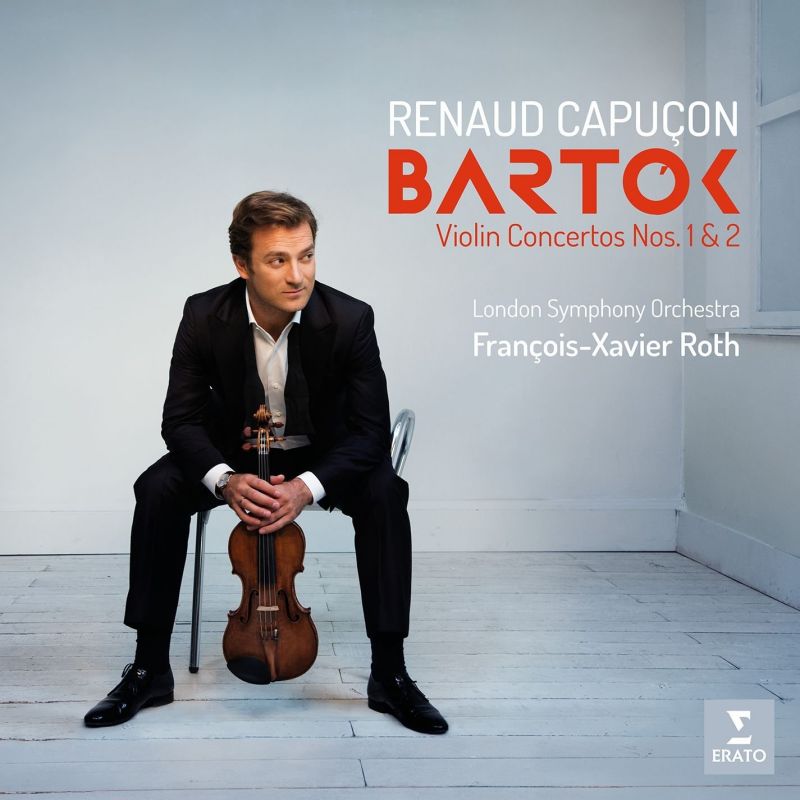BARTÓK Violin Concertos (Capuçon)
View record and artist detailsRecord and Artist Details
Composer or Director: Béla Bartók
Genre:
Orchestral
Label: Erato
Magazine Review Date: 04/2018
Media Format: CD or Download
Media Runtime: 60
Mastering:
DDD
Catalogue Number: 9029 57080-7

Tracks:
| Composition | Artist Credit |
|---|---|
| Concerto for Violin and Orchestra No. 1 |
Béla Bartók, Composer
Béla Bartók, Composer François-Xavier Roth, Conductor London Symphony Orchestra Renaud Capuçon, Violin |
| Concerto for Violin and Orchestra No. 2 |
Béla Bartók, Composer
Béla Bartók, Composer François-Xavier Roth, Conductor London Symphony Orchestra Renaud Capuçon, Violin |
Author: Rob Cowan
With Renaud Capuçon and François-Xavier Roth the issue is less a blend of folksy and modernist than modernist and romantic. Capuçon, like Mullova, makes Bartók’s musical path sound warmingly familiar, a centrist approach which, were it not for Roth’s meticulously attentive approach to the orchestral score, would have you concentrating exclusively on the often dreamy violin line. But time and again while listening I was drawn to this or that salient detail in Bartók’s orchestration: the clarinet behind the trilling soloist at 5'56" into the first movement, for example, while the perky LSO woodwinds make a real play for the jazzy episodes soon afterwards, where Capuçon jumps in with some brilliantly dispatched passagework. And what a sense of infinite sadness Capuçon brings to the opening of the second movement, mellow and seamlessly drawn: this really is beautiful violin-playing.
The opening of the finale is a little formal in comparison with Kopatchinskaja, Kelemen, Zehetmair and Faust but elsewhere a compensating sense of emotional engagement keeps the music vibrant and communicative. And there’s James Ehnes (who usefully couples the two concertos with the Viola Concerto), Arabella Steinbacher and a whole host of golden oldies – so much excellence to choose from.
As to the youthful First Concerto, with its adoring Andante sostenuto and dizzyingly excited Allegro giocoso, Capuçon plays the lover’s role (this was a love poem for the violinist Stefi Geyer) to perfection. Whether I’d choose it as a coupling for the Second Concerto in preference to the two magnificent violin Rhapsodies that Kelemen and Kocsis opt for (with variants) is open to question. That Hungaroton CD would still be my first choice but the considerate and musically persuasive partnership of Capuçon and Roth should certainly take its place among top recommendations for both concertos, especially as the sound is extremely well balanced.
Discover the world's largest classical music catalogue with Presto Music.

Gramophone Digital Club
- Digital Edition
- Digital Archive
- Reviews Database
- Full website access
From £8.75 / month
Subscribe
Gramophone Full Club
- Print Edition
- Digital Edition
- Digital Archive
- Reviews Database
- Full website access
From £11.00 / month
Subscribe
If you are a library, university or other organisation that would be interested in an institutional subscription to Gramophone please click here for further information.




